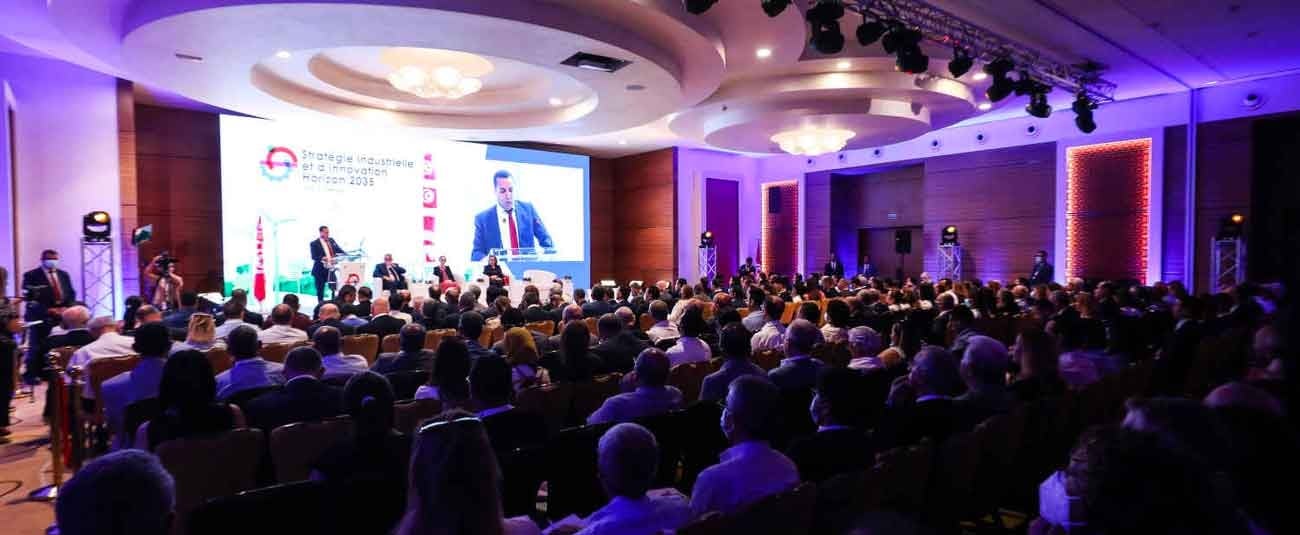
Tunisian-African business meetings: Strengthening trade links, creating new partnership opportunities
The third edition of the Tunisian-African Business Meetings (TABM) commenced on Tuesday in the capital city of Tunis, bringing together high-level delegations from African countries, along with eminent personalities, experts, and representatives from local and regional economic organizations.
Organized by the Center for Export Promotion (CEPEX), this two-day event is being held in coordination with the Tunisian Ministry of Trade and Export Development, and in partnership with the German International Cooperation Agency (GIZ) and the “Arab-Africa Trade Bridges” (AATB) program of the Islamic Trade Finance Corporation (ITFC).
The opening day of the event featured a roundtable discussion on “Bridging the Food Security Gap for Arab and African Countries”, chaired by several African ministers, the Director General of the Islamic Trade Finance Corporation, Hani Salem Sonbol, and the President of the African Export-Import Bank (Afreximbank), Benedict Okey Oramah.
Speaking to Anadolu, Benedict Okey Oramah highlighted Afreximbank’s role, stating, “Today, it is the bank that supports the implementation of the Africa-Canada trade agreement and also promotes trade between Africa and the rest of the world, by enhancing export capacities through industrialization and providing access to trade finance.”
Also present at the session were the Secretary-General of the African Continental Free Trade Area (AfCFTA), Wamkele Mene, the Commissioner of the African Union for Trade and Industry, Albert M. Muchanga, and the President of the Arab Bank for Economic Development in Africa (BADEA), Sidi Ould Tah.
“The solution is here… It is African partnership,” declared Nigerian Minister of Industry, Trade, and Investment, Doris Uzoka-Anite, emphasizing that such partnerships could resolve various challenges including access to financing, technology, and political issues across African regions.
Meanwhile, BADEA’s president underscored the need to address basic infrastructure challenges and highlighted the importance of public-private partnerships.
Burkina Faso’s Minister of Economy, Finance, and Prospective, Aboubakar Nacanabo, noted the significant challenges in food security, stressing the importance of political commitment.
“This is a very important issue,” he remarked, advocating for a holistic approach involving value chain considerations and greater involvement of the private sector.
The event also facilitated direct bilateral business-to-business (B2B) meetings between Tunisian enterprises seeking export opportunities and representatives from participating African countries such as Cameroon, Ghana, Benin, the Central African Republic, the Democratic Republic of Congo, Congo, Ivory Coast, Burkina Faso, Togo, Senegal, Kenya, and South Africa.
“I am here with a delegation of Cameroonian and Central African companies invited by CEPEX… This event is crucial as it allows African companies to network, understand each other’s value propositions, and explore partnerships,” commented Marlyse R. Ndjenga, a tax expert and Cameroonian business leader.
Highlighting the challenges hindering B2B growth, Ndjenga pointed out political barriers between states and emphasized the need for practical implementation of the African Continental Free Trade Area (AfCFTA).
“Eight African countries have been designated as test countries for AfCFTA, but we don’t see tangible outcomes,” she lamented.
Modou Mbène Guèye, CEO of the Senegalese Agency for Export Promotion (ASEPEX), focused on the opportunities, stating, “We are here to engage with Tunisian companies, offering them business opportunities in Senegal… In terms of trade, Tunisia ranks 40th in our bilateral trade, and we aim to correct the trade deficit through partnerships fostered at such events.”
Scheduled every two years, this flagship professional event in Tunisia and Africa contributes to the implementation of the “Project for the Promotion of Export Activities to New Markets in Sub-Saharan Africa” (PEMA II).
It provides a unique opportunity for Tunisian businesses to meet numerous African partners.
In addition to the two days of sessions, a third day of the event includes field visits to export-oriented companies upon request, aimed at showcasing their capabilities to major African importers attending the meetings.



